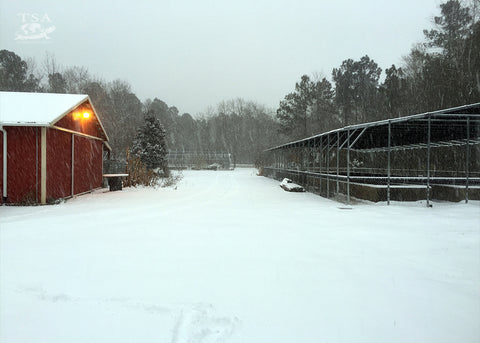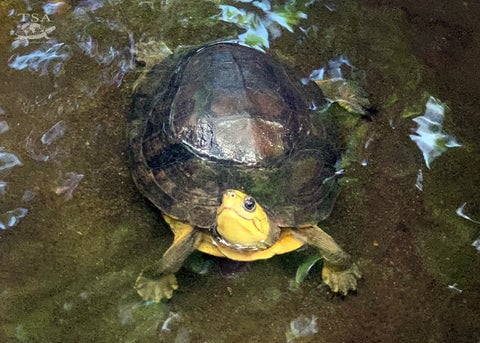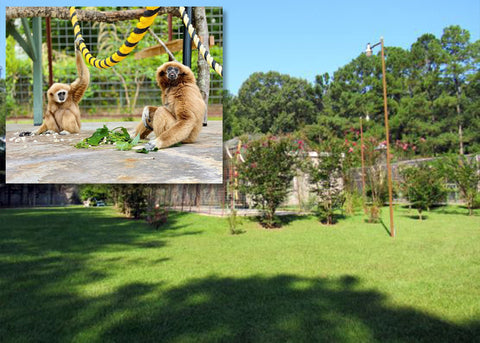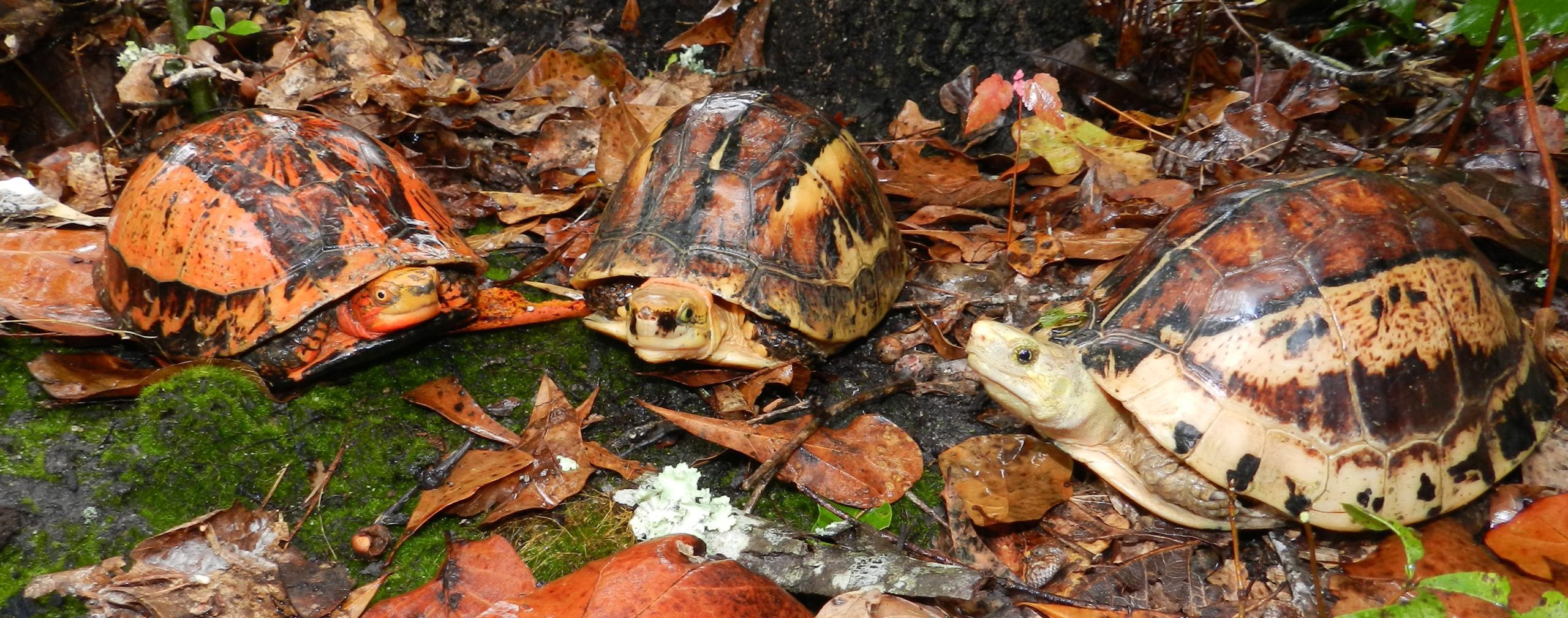By Jordan Gray
Winter has officially arrived here at the Turtle Survival Center. Those from more northerly areas of the United States might scoff at the notion of our winter. Some are likely even planning a vacation somewhere in this vicinity in the near future to escape the cold. But our winter is unpredictable and, as I write this, a major winter storm is descending upon us, bringing with it a week of nights of below-freezing temperatures.

Our staff at the Turtle Survival Center must prepare for all types of winter weather, including rare snow storms like that seen here in 2018. Photo: Cris Hagen
The onset of winter in the inner Coastal Plain of the South Carolina Lowcountry all happens rather suddenly. The deciduous trees only recently began losing their leaves. Now, though, a majority of the trees are bare. A few, however, still cling to large amounts of crisp brown foliage that will soon fall. And, at the Turtle Survival Center, our staff are preparing for the lengthy period where it can be hot one day and cold the next, bone-dry for weeks, or cold and rainy for days (like today). We may even have snow or ice. Our preparations are crucial to ensuring the safety of our collection of Endangered and Critically Endangered turtles and tortoises.
Turtles are ectothermic (cold-blooded) creatures. This means that their metabolic activity is controlled, for the most part, by the environment around them. In nature, turtles have evolved to live in environments in which they are native and can freely move about to thermoregulate. They can move into sunny areas to bask, find moist microhabitats, hide under cover, or seek out pools of water to cool down. At the Center, we must provide all of these opportunities for the turtles or make management decisions—such as moving turtles indoors—to accommodate their thermal limits or preferred optimal temperature zones. The preferred optimal temperature zone is a temperature range that allows for optimal biological functions such as movement, feeding, digestion, and a functioning immune system.
The majority of turtles we care for here are native to Asia, a large continent that spreads across the tropics, subtropics, and temperate zone. Within these climate zones, there is a vast array of biomes, microbiomes, and ecoregions. So, for the turtles we maintain, we must take their natural history, biology, and thermal limitations into account at all times.
Take, for example, the three species of “Indochinese box turtles.” While all three—the Indochinese Box Turtle (Cuora galbinifrons), Bourret’s Box Turtle (Cuora bourreti), and Southern Vietnam Box Turtle (Cuora picturata)—are native to Vietnam, they evolved to inhabit different climates and ecosystems. We can maintain Indochinese Box Turtles outdoors year-round. For the Bourret’s and Southern Vietnam box turtles, however, we must bring them into indoor winter quarters. And, it’s indoors during these winter months where we witness another peak in Southern Vietnam Box Turtle egg laying.

The Yellow-headed Box Turtle is native to the Huangshan and Dabie mountains of eastern China. There, the species evolved to inhabit valleys that experience cool-to-cold winters. Photo: Cris Hagen
Then there are turtles that are active year-round in spite of cold days. Pan’s (Cuora pani) and Yellow-headed (Cuora aurocapitata) box turtles are good examples. Both are native to mountain streams of eastern China. There, the turtles have adapted to cool-to-cold temperate winters. Because of this natural history, these two species are active throughout the winter at our Center, reducing their activity on the coldest days.
For nearly all terrestrial and semi-aquatic turtles maintained at our Center, providing adequate protection from the cold is a top priority at this time of year. This typically comes in the form of dense leaf litter added to each outdoor habitat for the turtles to burrow in or under. As the leaf litter compacts, it provides an ideal buffer from temperatures that may fall near or below freezing.

In 2021 and again in 2022, the International Primate Protection League–Our Gibbon Sanctuary donated hundreds of bags of leaves for which to provide the turtles at our Turtle Survival Center with an insulating buffer from winter cold spells. Photo: International Primate Protection League
The Center is surrounded by mixed deciduous/evergreen forests, giving us a close source of leaves to gather. But, having an eco-friendly alternative source of adequate leaf litter is welcome. This year our friends at the International Primate Protection League–Our Gibbon Sanctuary, located nearby in Summerville, South Carolina, and home to nearly thirty gibbons, again reached out a helping hand. The Sanctuary features large oak trees on the property that can provide all the fallen leaves we need to keep our turtles comfortable and safe over the next few months. And because the trees are located on open turf, leaf collection has little impact on natural forests and their inhabitants. In 2021 the Sanctuary donated 100 bags of leaves. This year they again donated just as many. As simple as the gift of leaf litter is, creating and maintaining these types of local partnerships is important to the health of the turtles at the Center and, for some, the future of their species.
